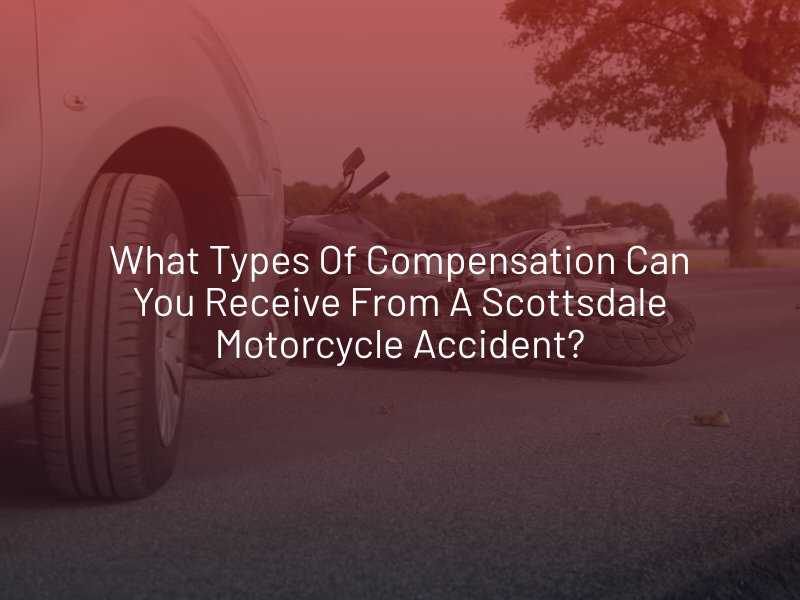Scottsdale Motorcycle Accident Lawyer
If you have been involved in a motorcycle accident, securing experienced legal representation is crucial. Our Scottsdale motorcycle accident lawyers are ready to fight for your rights and advocate for the compensation you deserve. Call (702) 620-9871 or message us online for a free consultation.
How Can Our Scottsdale Motorcycle Accident Lawyers Help You
Our Scottsdale motorcycle accident lawyers can play a pivotal role in assisting you with your claim. Your recovery and justice are our top priorities, and our firm has a 99% success rate of securing favorable outcomes for our clients. From the initial consultation to the resolution of your case, we will provide you with skilled legal guidance and advocacy throughout the entire process.
We will evaluate the details of the accident, assess liability, gather evidence, and determine the potential strengths and weaknesses of the case. After calculating your claim’s value, we will handle all communication with the insurance companies to ensure you are not taken advantage of and receive maximum compensation.
In the event of a lawsuit, we will represent you in court and, with our extensive trial experience, present a strong case to the judge and jury. Hiring an attorney will also alleviate the burden placed on you, allowing you to focus on your recovery while the legal aspects are skillfully managed.
Common Causes of Motorcycle Accidents
Motorcycle accidents can result from a variety of factors, but common causes in Scottsdale include:
- Distracted Driving: Motorists not paying attention to their surroundings due to distractions such as cellphones, eating, talking with passengers, changing the music, etc.
- Unsafe Lane Changes: Drivers may fail to check blind spots before changing lanes, not noticing motorcyclists.
- Speeding: Excessive speeds reduce reaction time, making it challenging for both motorcyclists and other drivers to avoid a crash.
- Failure to Yield: Motorists not yielding the right of way to motorcycles, especially at intersections or during lane changes.
- Inexperienced Riders: Riders who lack experience or training may struggle to handle challenging road situations.
- Driving Under the Influence: Alcohol or drug impairment alters motorists’ ability to operate a vehicle safely and significantly increases the risk of accidents.
- Left-Turn Collisions: Motorcycle crashes often occur when a vehicle makes a left turn in front of an oncoming rider, particularly at intersections.
- Weather Conditions: Adverse weather, such as rain or snow, can reduce visibility and make road surfaces slippery.
- Motorcycle Defects: Mechanical failures or defects in the motorcycle or vehicle involved, such as faulty brakes or tires, can contribute to accidents.
- Reckless or Aggressive Driving: Aggressive behaviors like tailgating or weaving in and out of traffic.
- Poor Road Conditions: Uneven road surfaces, potholes, or debris can pose significant hazards for motorcyclists.
- Sudden Stops: Motorists making sudden stops or following too closely behind motorcyclists may not allow sufficient braking distance, resulting in rear-end collisions.
- Lane Splitting: Riding a motorcycle between lanes of slow-moving or stopped traffic, known as lane splitting, can result in accidents if drivers are unaware of or do not anticipate the motorcyclist’s presence.
Common Injuries Suffered in Motorcycle Accidents
Motorcycle accidents often result in a range of severe injuries, such as:
- Road Rash: Abrasions and lacerations caused by contact with the road surface during a slide or skid.
- Fractures and Broken Bones: Impact with the ground or another vehicle can lead to fractures or breaks in the bones, particularly in the extremities.
- Head Injuries: Traumatic brain injuries (TBI) or concussions can occur, even with helmet use, due to the forces involved in a motorcycle accident.
- Spinal Cord Injuries: Injuries to the spinal cord can result in partial or complete paralysis, depending on the severity and location of the damage.
- Internal Injuries: Blunt force trauma can cause injuries to internal organs, leading to internal bleeding or damage that requires immediate medical attention.
- Burn Injuries: Motorcycle accidents can result in burns from contact with hot surfaces or ignited fuel, particularly in accidents involving fires.
- Facial Injuries: If the face makes impact with the ground or other objects it can cause facial fractures, lacerations, or injuries to the eyes and nose.
- Crush Injuries: Being pinned between the motorcycle and another vehicle or object can cause crush injuries, potentially leading to damage to internal organs or limbs.
- Emotional and Psychological Trauma: The emotional impact of a motorcycle accident, such as post-traumatic stress disorder (PTSD), anxiety, or depression.
- Loss of Limbs: Severe accidents may result in traumatic amputations or the loss of limbs.
Seeking immediate medical attention after an accident is crucial, even if injuries seem minor, as some symptoms may not manifest immediately.
What Should I Do Immediately After a Motorcycle Accident
Immediately after a motorcycle accident, it is crucial to take certain steps to ensure your safety, preserve evidence, and protect your legal rights. Here is what to do:
- Prioritize Safety: Move to a safe location if possible, especially if you’re in the middle of the road or at risk of further harm. Turn on hazard lights to alert other drivers to the accident.
- Check for Injuries: Assess yourself and others for injuries. Call for emergency medical assistance by dialing 911.
- Call the Police: Contact the police to report the accident, even if it seems minor. Having an official report can be crucial for insurance claims and legal proceedings.
- Exchange Information: Exchange names, contact information, and insurance details with the other parties involved. Also, get contact information from any witnesses.
- Document the Scene: Take photographs of the accident scene, including vehicle damage, road conditions, and any relevant traffic signs or signals. These photos can serve as valuable evidence.
- Do Not Admit Fault: Avoid admitting fault or making statements that could be construed as an admission of guilt. Stick to factual information when discussing the accident.
- Seek Medical Attention: Even if you don’t feel seriously injured, seeking medical attention when you leave the scene is essential. Injuries may not be immediately apparent, and a medical examination can document any injuries for insurance and legal purposes.
- Preserve Evidence: Preserve any evidence related to the accident, such as damaged clothing, motorcycle parts, or any other items that may be relevant to the investigation.
- Report to Your Insurance Company: Contact your insurance company to report the accident and discuss your coverage.
- Consult an Attorney: If you sustained injuries or significant property damage, speak to an attorney as soon as possible. They can help you navigate the legal process, protect your rights, and pursue compensation for your losses.
Types of Compensation You Can Receive
Various types of compensation may be available to individuals who have been involved in a motorcycle accident. These can address the physical, financial, and emotional toll of the incident. For example:

- Medical Expenses: Coverage for current and future medical bills, including hospitalization, surgeries, doctor visits, medications, rehabilitation, therapy, etc.
- Lost Wages: Compensation for income lost due to time away from work during recovery. This may also include compensation for a reduced earning capacity if the injuries affect your ability to work in the future.
- Property Damage: Reimbursement for the repair or replacement of the damaged motorcycle and other property, such as riding gear.
- Pain and Suffering: A type of non-economic damages, meaning losses not linked to an actual financial loss but meant to compensate for the physical and emotional distress, pain, and suffering caused by the accident and its aftermath.
- Emotional Distress: Compensation for psychological trauma resulting from the crash.
- Loss of Consortium: Damages awarded to compensate for the negative impact of the injuries on the injured party’s relationships with family members, including loss of companionship or intimacy.
- Wrongful Death Damages: In cases of fatal motorcycle accidents, surviving family members may be eligible to pursue a wrongful death claim for compensation for funeral expenses, loss of financial support, and emotional distress.
In some instances, punitive damages may be awarded to punish the at-fault party for egregious conduct and deter others from similar behavior.
Call Our Scottsdale Motorcycle Accident Lawyers Today
Our dedicated team of Scottsdale personal injury attorneys is here to provide unwavering support and guidance to ensure you recover fair compensation. Message us online or call (702) 620-9871 to arrange a free consultation today.


